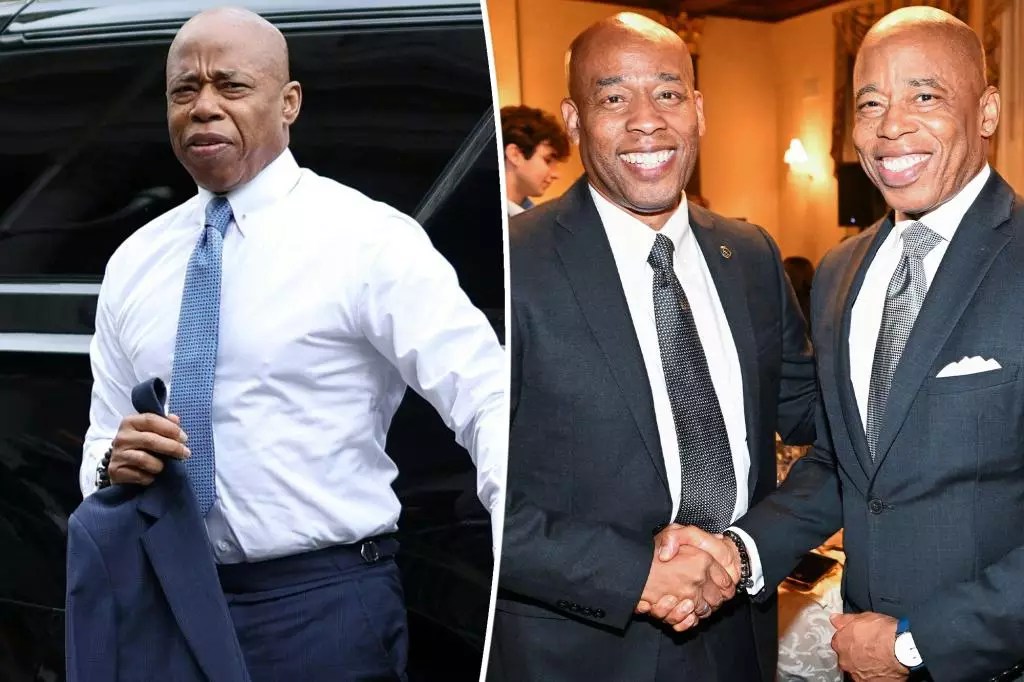In the realm of philanthropy, galas and events serve as principal avenues for fundraising, showcasing the generosity of attendees while spotlighting the needs of communities. However, an unexpected change in plans can create chaos, disappointment, and skepticism among supporters. This was starkly evident when Bernard Adams’ charity, Angels Helpers, faced a significant issue surrounding a highly anticipated gala. Initially scheduled for October 17, the event was abruptly canceled, resulting in a cascade of reactions that revealed deeper concerns regarding communication, organizational integrity, and the overall management of the charity.
As the gala date approached, ticket holders, some of whom had invested as much as $11,000, were left in the dark about the cancellation. Reports indicate that many guests learned the event was off only after arriving in New York City, with one individual showing up in formal attire, only to be informed that the venue had been changed weeks earlier. The lack of timely and direct communication from Angels Helpers raised eyebrows, with attendees expressing frustration over not receiving notifications or refunds promptly.
In response, the charity claimed it had made people aware of the postponement, stating they had contacted attendees via phone and messaging platforms, insisting that a new location was provided well ahead of time. However, conflicting accounts from guests about their knowledge of the cancellation created a rift in trust. Such disarray not only diminishes the credibility of the charity but also raises questions regarding its organizational competencies.
Social media can influence public perception significantly, and unfortunately for Angels Helpers, the Instagram activity of co-founder Alisa Roever painted an incongruous picture during the event’s turmoil. While Roever was posting celebratory images two nights prior from an Italian heritage month event with Mayor Eric Adams, the confusion surrounding the charity’s gala only intensified its precarious situation. This dissonance between public displays of social engagements and the unfolding chaos of the charity’s cancellation led to increased scrutiny and skepticism about the authenticity of its operations.
While it is expected for charity organizers to establish cordial relationships with public figures, frequent appearances alongside the mayor—who was meant to speak at the gala—without clarity on existing commitments created a narrative that could undermine the charity’s purpose. The absence of a clear, unified message from leadership contributed to a growing distrust among supporters.
It has also emerged that ticket sales for the gala were underwhelming, with some reports attributing this shortfall to donor fatigue or perhaps a lack of interest in past events. The charity’s initial plans experienced multiple changes, including a switch of venues and ticket prices. Such alterations might signal logistical challenges or deeper issues regarding the financial viability of Angels Helpers itself.
One must consider whether the organization possesses the necessary infrastructure to adapt to setbacks. Instead of an asset, ongoing changes in event logistics may suggest a troubling lack of foresight or planning, leading potential supporters to question the trustworthiness of the charity. Going forward, establishing stability in its operations will be crucial for Angels Helpers to restore any lost confidence.
The perceived close ties between Bernard Adams and his brother, Mayor Eric Adams, have sparked debates over potential nepotism and ethical governance. Bernard previously held a position as the Mayor’s head of security, which drew criticism and led to limitations on his remuneration amid claims of conflicts of interest. Such stories not only cloud the charity’s efforts but also reflect larger societal concerns surrounding connections in public service versus private initiatives.
Accountability is vital for charities, as stakeholders demand transparency—especially concerning how funds are utilized and the beneficiaries served. Whether Angels Helpers can effectively navigate these ethical waters will greatly influence its future operations and ability to garner support.
The recent cancellation of the Angels Helpers gala serves as a cautionary tale about the importance of effective communication, organizational management, and maintaining public trust within philanthropic endeavors. For a charity aiming to impact New York City’s youth positively, it must prioritize transparent practices, build a cohesive message, and regain public confidence. Future events will require a disciplined approach, as the repercussions of this one cancellation could resonate well beyond October 17, impacting its credibility and engagement for years to come. The path forward is intricate, but with constructive changes, it can still inspire the support needed to fulfill its noble mission.


Leave a Reply